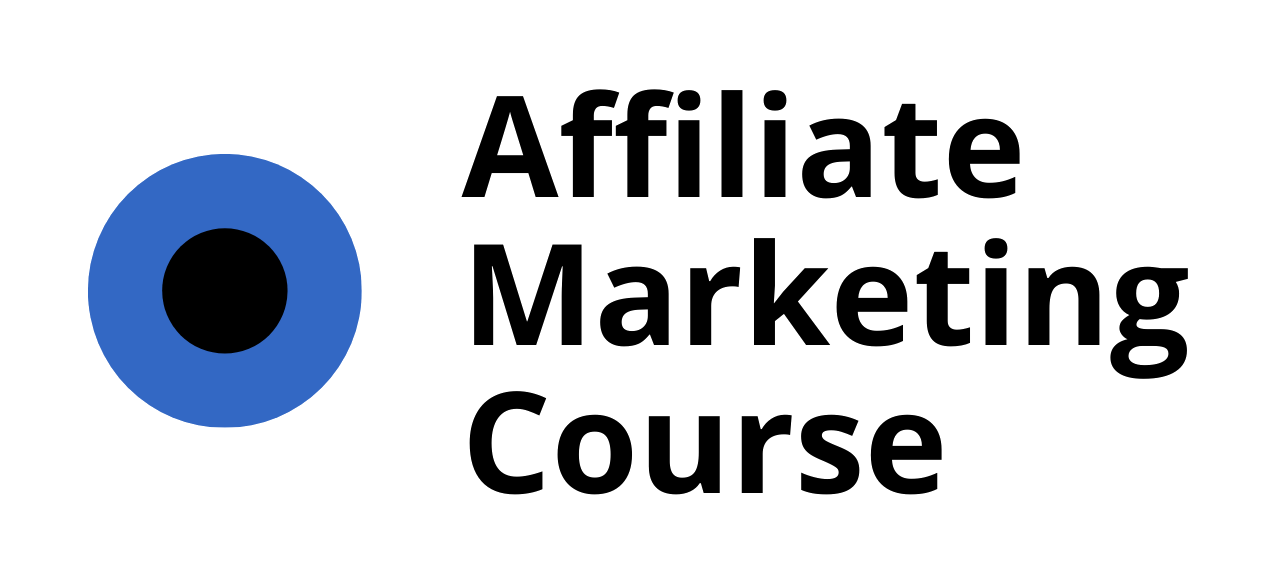As the digital landscape continues to evolve, businesses are increasingly turning to affiliate marketing as a lucrative way to reach their target audiences and drive sales. However, creating high-quality affiliate marketing content that resonates with potential customers can be a daunting task, especially for those new to the field. With the rise of online shopping and social media, consumers are bombarded with countless advertisements and promotional offers, making it essential for affiliate marketers to stand out from the crowd and craft compelling content that drives real results.

Creating Content for Affiliate Marketing
I’ve been working in affiliate marketing for years, and I’ve learned what it takes to create effective content that drives sales.
-
Define Your Niche
Determine which products or services you want to promote and who your target audience is.
- Research popular products and services in your niche
- Analyze your competition and identify gaps in the market
- Create a content calendar to plan and organize your content
Choose Your Content Format
Decide on the type of content you want to create, such as blog posts, videos, podcasts, or social media posts.
- Blog posts: In-depth articles that provide valuable information and promote products
- Videos: Visual content that showcases products and demonstrates their features
- Podcasts: Audio content that interviews experts and promotes products
- Social media posts: Short-form content that engages with your audience and promotes products
Optimize Your Content for SEO
Use keywords, meta descriptions, and optimize images to improve your content’s visibility in search engines.
- Conduct keyword research to determine relevant keywords and phrases
- Write a compelling meta description that entices users to click on your content
- Optimize images by adding alt tags and descriptive file names
Engage with Your Audience
Respond to comments, answer questions, and provide value to your audience to build trust and loyalty.
- Respond to comments and engage with your audience on social media
- Answer questions and provide helpful information in your content
- Offer exclusive discounts or promotions to loyal customers
Monitor and Analyze Your Results
Track your content’s performance using analytics tools and adjust your strategy accordingly.
- Set up analytics tools to track your content’s performance
- Monitor your content’s engagement rates, click-through rates, and conversion rates
- Adjust your strategy based on your analytics data
Additional Tips:
Always disclose your affiliation with the product or service provider, and comply with the Federal Trade Commission (FTC) guidelines on affiliate marketing.
Use high-quality images and graphics to enhance your content’s visual appeal.
Collaborate with influencers or other affiliates to reach a wider audience.
Do I Have to Be a Content Creator to Do Affiliate Marketing?
You don’t need to be a content creator to start affiliate marketing, but having a strong online presence can certainly help.
- Basic Requirements: To get started with affiliate marketing, you’ll need a computer, internet connection, and a willingness to learn.
- No Experience Necessary: While prior knowledge of marketing or sales can be helpful, it’s not required to succeed in affiliate marketing.
What Can I Promote Without Being a Content Creator?
There are several options available to promote products without creating content:
- Social Media Promotion: Share products on social media platforms like Facebook, Instagram, Twitter, or LinkedIn.
- Email Marketing: Build an email list and send promotional emails to subscribers.
- Influencer Partnerships: Partner with influencers who already have a large following in your niche.
- Paid Advertising: Use paid advertising channels like Google Ads or Facebook Ads to reach potential customers.
Benefits of Affiliate Marketing Without Content Creation:
While creating content can be beneficial, there are still advantages to affiliate marketing without content creation:
- Lower Barrier to Entry: Starting affiliate marketing requires less initial investment compared to content creation.
- Faster Results: With paid advertising or influencer partnerships, you can see faster results compared to building an audience through content creation.
Conclusion:
Affiliate marketing is accessible to anyone, regardless of whether you’re a content creator or not. By leveraging various promotion methods, you can start earning commissions without needing extensive content creation skills.

Best Performing Types of Affiliate Marketing Content to Create
In order to succeed in affiliate marketing, it’s essential to create high-quality content that resonates with your target audience.
-
Blogging
Blogging is a popular and effective way to share knowledge, experiences, and expertise with others. As an affiliate marketer, you can create informative blog posts that showcase your skills and establish yourself as an authority in your niche.
When creating blog posts, remember to:
- Optimize your titles and meta descriptions for better search engine ranking
- Use header tags (H2-H4) to structure your content and highlight important points
- Include internal and external links to enhance user experience and credibility
- Write engaging and informative content that adds value to your readers
-
Videos
Videos are an excellent way to convey complex information in an entertaining and easily digestible manner. As an affiliate marketer, you can create video tutorials, product reviews, or vlogs that showcase your personality and expertise.
When creating videos, remember to:
- Optimize your video titles, descriptions, and tags for better search engine ranking
- Use eye-catching thumbnails and captions to grab viewers’ attention
- Include internal and external links to enhance user experience and credibility
- Engage with your audience by responding to comments and creating a community around your content
-
Podcasting
Podcasting is a great way to reach a wider audience and establish yourself as an authority in your niche. As an affiliate marketer, you can create podcasts that discuss topics related to your niche, interview experts, or share success stories.
When creating podcasts, remember to:
- Optimize your podcast titles, descriptions, and tags for better search engine ranking
- Use catchy episode titles and descriptions to entice listeners
- Include internal and external links to enhance user experience and credibility
- Engage with your audience by responding to comments and creating a community around your content
-
Email Marketing
Email marketing is a powerful tool for building relationships with your audience and driving sales. As an affiliate marketer, you can create email campaigns that promote products, share exclusive offers, or provide valuable tips and advice.
When creating email campaigns, remember to:
- Optimize your subject lines and email copy for better open rates and click-through rates
- Use segmentation and personalization to tailor your messages to specific audiences
- Include internal and external links to enhance user experience and credibility
- Monitor and analyze your email metrics to optimize future campaigns
-
Social Media
Social media is an essential channel for affiliate marketers to connect with their audience, share content, and drive traffic to their websites. As an affiliate marketer, you can create social media content that showcases your personality, shares valuable information, and promotes products.
When creating social media content, remember to:
- Optimize your profiles and bio for better visibility and credibility
- Use hashtags and tagging to increase engagement and reach a wider audience
- Include internal and external links to enhance user experience and credibility
- Engage with your audience by responding to comments and creating a community around your content
-
Webinars
Webinars are an excellent way to educate and engage your audience, while also promoting products and services. As an affiliate marketer, you can create webinars that showcase your expertise, share success stories, or provide valuable tips and advice.
When creating webinars, remember to:
- Optimize your webinar titles, descriptions, and tags for better search engine ranking
- Use eye-catching graphics and promotional materials to grab attendees’ attention
- Include internal and external links to enhance user experience and credibility
- Engage with your audience by responding to questions and creating a community around your content
-
Case Studies
Case studies are an excellent way to demonstrate the effectiveness of a product or service, while also showcasing your expertise and credibility. As an affiliate marketer, you can create case studies that highlight success stories, challenges overcome, and lessons learned.
When creating case studies, remember to:
- Optimize your case study titles, descriptions, and tags for better search engine ranking
- Use eye-catching visuals and infographics to illustrate key points
- Include internal and external links to enhance user experience and credibility
- Engage with your audience by sharing lessons learned and best practices
-
Product Reviews
Product reviews are an essential part of affiliate marketing, allowing you to share your honest opinion and expertise with your audience. As an affiliate marketer, you can create product reviews that highlight pros, cons, and features of various products.
When creating product reviews, remember to:
- Optimize your review titles, descriptions, and tags for better search engine ranking
- Use eye-catching visuals and screenshots to illustrate key points
- Include internal and external links to enhance user experience and credibility
- Engage with your audience by responding to comments and creating a community around your content
-
How-to Guides
How-to guides are an excellent way to educate and engage your audience, while also establishing yourself as an authority in your niche. As an affiliate marketer, you can create how-to guides that showcase your expertise, share step-by-step instructions, and provide valuable tips and advice.
When creating how-to guides, remember to:
- Optimize your guide titles, descriptions, and tags for better search engine ranking
- Use eye-catching visuals and infographics to illustrate key points
- Include internal and external links to enhance user experience and credibility
- Engage with your audience by responding to comments and creating a community around your content
-
FAQs
FAQs are an essential part of affiliate marketing, allowing you to address common questions and concerns of your audience. As an affiliate marketer, you can create FAQs that highlight frequently asked questions, answers, and solutions.
When creating FAQs, remember to:
- Optimize your FAQ titles, descriptions, and tags for better search engine ranking
- Use eye-catching visuals and infographics to illustrate key points
- Include internal and external links to enhance user experience and credibility
- Engage with your audience by responding to comments and creating a community around your content
By incorporating these types of content into your affiliate marketing strategy, you’ll be well on your way to establishing yourself as an authority in your niche and driving sales and revenue.

What is an Affiliate Content Creator?
An affiliate content creator is an individual who promotes products or services from another company and earns a commission on sales or referrals made through their unique affiliate link.
- They create content around the product or service, such as reviews, tutorials, or comparisons, to attract potential customers and drive traffic to the affiliate link.
- The affiliate content creator partners with a company to promote their products or services, often through a network or program specifically designed for affiliates.
- In exchange for promoting the product or service, the affiliate content creator receives a percentage of the sale or referral fee, which can be a one-time payment or recurring revenue.
Types of Affiliate Content Creators:
- Bloggers: Create content on their own blog to promote products or services and earn commissions.
- YouTubers: Produce video content on YouTube to showcase products or services and earn money from affiliate links in their videos or video descriptions.
- Social Media Influencers: Leverage their large following on platforms like Instagram, TikTok, or Twitter to promote products or services and earn commissions.
- Podcasters: Create audio content on their podcast to discuss products or services and include affiliate links in their show notes or sponsorships.
Benefits of Being an Affiliate Content Creator:
- Passive Income: Earn money from sales or referrals without actively selling products or services.
- Flexibility: Work from anywhere and at any time, making it a great option for those who want to balance work and personal life.
- Low Risk: Starting an affiliate marketing business requires little to no upfront costs, making it a low-risk venture.
- Opportunity to Promote Products They Love: Affiliate content creators can promote products or services they genuinely believe in and use themselves.
Challenges Faced by Affiliate Content Creators:
- Competition: With so many affiliate content creators out there, standing out and attracting a significant audience can be challenging.
- Disclosure Requirements: Many countries have laws requiring affiliate content creators to disclose their affiliation with the product or service provider.
- Commission Rates: Affiliate content creators may face varying commission rates, which can impact their earnings.
- Product Quality: Affiliate content creators may promote products or services that don’t meet their expectations or standards.
Best Practices for Affiliate Content Creators:
- Honesty and Transparency: Clearly disclose their affiliation with the product or service provider and be honest about their experiences.
- Quality Content: Create high-quality, engaging, and informative content that resonates with their target audience.
- Diversify Income Streams: Diversify their income streams by promoting multiple products or services to reduce dependence on a single source.
- Stay Up-to-Date: Stay informed about the latest trends, tools, and best practices in affiliate marketing to stay ahead of the competition.
Is Affiliate Marketing Hard?
As someone who has been in the industry for a while, I can confidently say that affiliate marketing requires dedication, patience, and persistence.
- Initial Effort: Getting started with affiliate marketing does require some initial effort, including setting up a website, creating content, and building relationships with potential partners.
- Learning Curve: There is a learning curve associated with affiliate marketing, particularly when it comes to understanding the intricacies of commission structures, tracking codes, and promotional strategies.
- Ongoing Maintenance: Once you’ve set up your affiliate marketing campaign, there’s ongoing maintenance required to ensure its success, including monitoring performance, adjusting strategies, and staying up-to-date with industry developments.
The Benefits of Affiliate Marketing
Despite the challenges, affiliate marketing offers numerous benefits, including:
- Potential for Passive Income: With affiliate marketing, you can earn passive income by promoting products or services and earning commissions on sales generated through your unique referral link.
- No Upfront Costs: Starting an affiliate marketing campaign typically doesn’t require significant upfront costs, making it an accessible option for those just starting out.
- Diversified Income Streams: By promoting multiple products or services, you can diversify your income streams and reduce reliance on a single source of revenue.
Overcoming Common Challenges
To overcome common challenges in affiliate marketing, consider the following strategies:
- Develop a Strong Understanding of Your Audience: Knowing your target audience and tailoring your content and promotions accordingly can significantly improve your chances of success.
- Create High-Quality Content: Producing high-quality, engaging content is essential for attracting and retaining a loyal audience.
- Stay Up-to-Date with Industry Developments: Staying informed about the latest trends, tools, and best practices in affiliate marketing can help you stay ahead of the competition.
Conclusion
In conclusion, while affiliate marketing may present some challenges, it can also offer significant rewards for those willing to put in the effort and dedication required to succeed.

Who Pays a Content Creator?
As a content creator, I’m often asked who pays me for my work.
- Ad Revenue: Platforms like YouTube and TikTok pay creators through their partner programs, which allow us to earn money from ads displayed on our videos or live streams. The amount we earn depends on factors like view count, watch time, and audience engagement.
- Brand Partnerships: Brands collaborate with popular content creators to promote their products or services. We may receive free products, services, or cash payments in exchange for featuring these brands in our content.
- Sponsored Posts: Social media platforms like Instagram and Facebook allow creators to monetize their influence by partnering with brands for sponsored posts. These posts typically feature a product or service and include a call-to-action, driving traffic to the brand’s website or social media channels.
- Affiliate Marketing: As an affiliate marketer, I earn commissions by promoting products or services from other companies and including affiliate links in my content. When someone clicks on these links and makes a purchase, I receive a percentage of the sale as a commission.
- Patreon and Membership Programs: Some creators offer exclusive content, early access, or behind-the-scenes material to fans who support them financially through Patreon or membership programs.
I’ve partnered with various brands and platforms to monetize my content, including YouTube’s Partner Program and Instagram’s Brand Partnership Program.
When working with brands, I always ensure that the partnership aligns with my values and audience interests. Transparency is key, and I disclose sponsored content to my viewers to maintain trust and credibility.
By diversifying my income streams and staying adaptable, I can continue to create high-quality content while earning a living from my passion.
For those interested in learning more about affiliate marketing and building a sustainable online business, I recommend checking out Affiliate Marketing Course for expert advice and training.

0 Comments